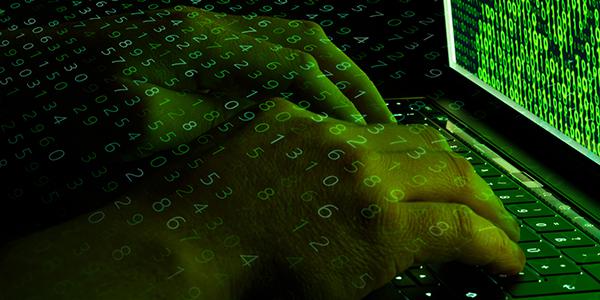Senior NCOs Defend Distinctive Info Ops Approaches
A group of senior noncommissioned officers (NCOs) from the various military services argued against a one-size-fits-all approach to information warfare.
An audience member at the AFCEA Cyber Education Research and Training Symposium challenged the high-ranking NCOs on a perceived need for joint, standardized training. The questioner pointed out that the services do not even use the same terminology. For example, the Marines have a concept for information maneuver, the Army is developing an information advantage strategy, and the Air Force and Navy both prefer the term information warfare.
But the panel disagreed a unified program is needed or beneficial.
Chief Master Sergeant David Klink, USAF, senior enlisted advisor at the Defense Information Systems Agency, responded firstly and forcefully. “We have purposeful diversity among the services. We fight as a joint force, and we have to be able to integrate in, but there is a reason the services shape their training, their needs and what they do based on their service’s mission and their service’s role, as well as their culture and their history,” he said. “One of the strengths we have as a fighting force is the ability to integrate that together. Although we have to speak a common language, we have to have that joint connectivity, and understand, I don’t think there should be a purposeful force to cause the services to become unified on the information front.”
He explained that the different tactical missions require different approaches. "What tactical units on the ground do is not anything like what the air campaign does or at sea. There is a reason that diversity’s there. I, for one, want to be able to integrate that at the joint [level] so that we’re not speaking opposite languages but not an attempt to simply unify it and make it a purple mission set because it’s not.”
Command Sgt. Maj. Jack Nichols, USA, the command sergeant major at Army Cyber Command, agreed, pointing out that his command supports joint operations, including the Joint Chiefs of Staff and Gen. Nakasone, who commands both U.S. Cyber Command and the National Security Agency.
Furthermore, the members of the symposium panel talk to each other at least three times a week, Maj. Nichols reported. “Air Force does Air Force things; Army does Army things. But we do go back and talk to one another about how does this work and how does this not work in your space?”
Command Master Chief Scott Nagle, USN, who currently serves with U.S. Fleet Cyber Command/U.S. Tenth Fleet, pointed out that the Navy also supports myriad joint missions, communicates regularly with the other services while also meeting Navy-specific needs. “There are Navy-specific missions where our sailors have to have that fleet experience and have to bring their technical expertise up to the fleet and be able to speak Navy as well. So, that’s what I’ll say about that.”
Sgt. Maj. Jay Williamson, USMC, Marine Corps Forces Cyber Command, also defended a diverse approach. “You need that diversity. If you come up to any of our operation centers as we’re doing a mission, it’s a joint environment. You very rarely see a one-service team executing a mission all by themself, so we’re already integrated. But you need each of our services to maintain our identity because every now and then it helps to have a crazy Marine looking for a different aspect. If we lose our identity too much, I think we will lessen our capabilities.”






Comment
none of these people could
none of these people could agree on how to spell cat if you spotted all of them the C and the A. Diversity is another way of saying funding and dollars for programs. CYBERCOM has platforms and tools which work effectively and are in full operation and yet the branches of the service continue to throw millions of dollars at solutions which are basically recreating the wheel. They wonder why they cant get a full operational picture and their concept of "unified ops across domains ( ie Army CPB to GDP, to RCC, to ARCYBER) does not work....Go along, Get along, Get promoted or get a job upon retirement should be the mantra. Until the leadership starts looking under the hood at the engine and stops paying for power point presentations and whitepapers written by contractors and PMs with personal agendas...none of this will matter and discussions around joint, unified, etc...will continue to be just that...discussions, panels, and platforms with no substance. Thank God for the operators who will get the mission done despite the plethora of non operational, ineffective solutions they are given by their "leadership".
Comments